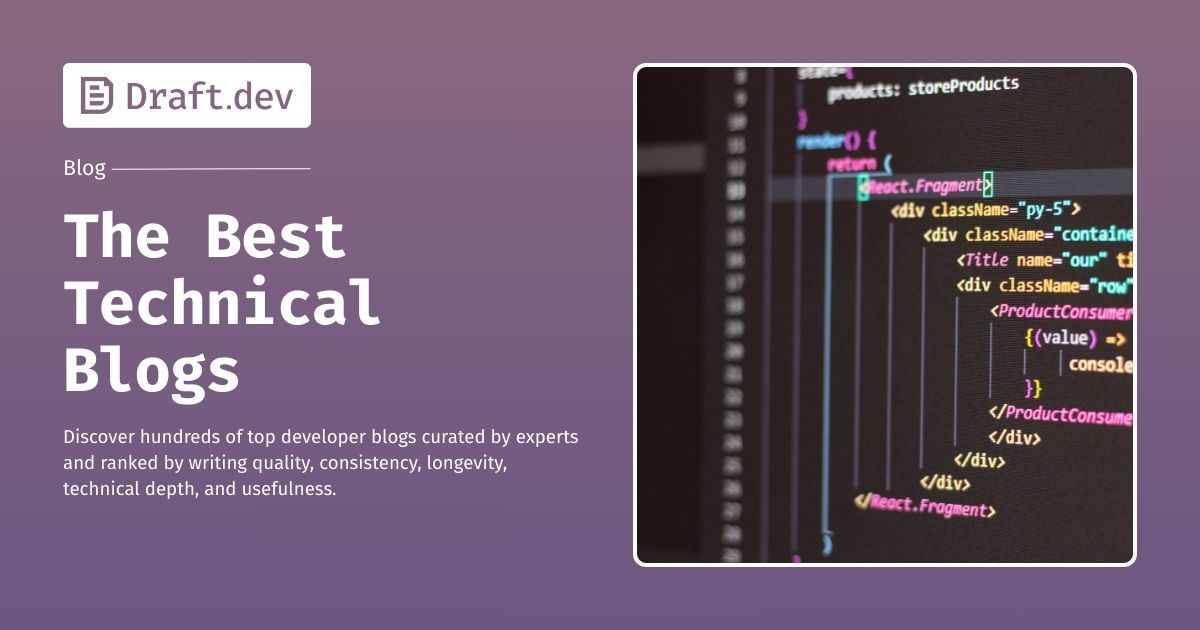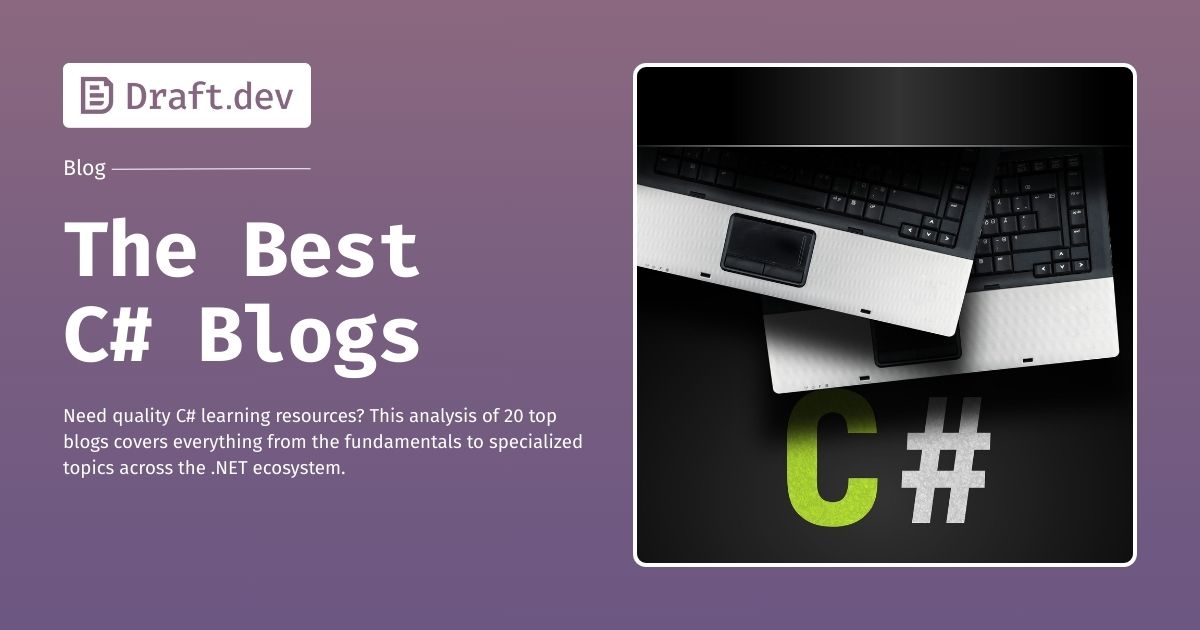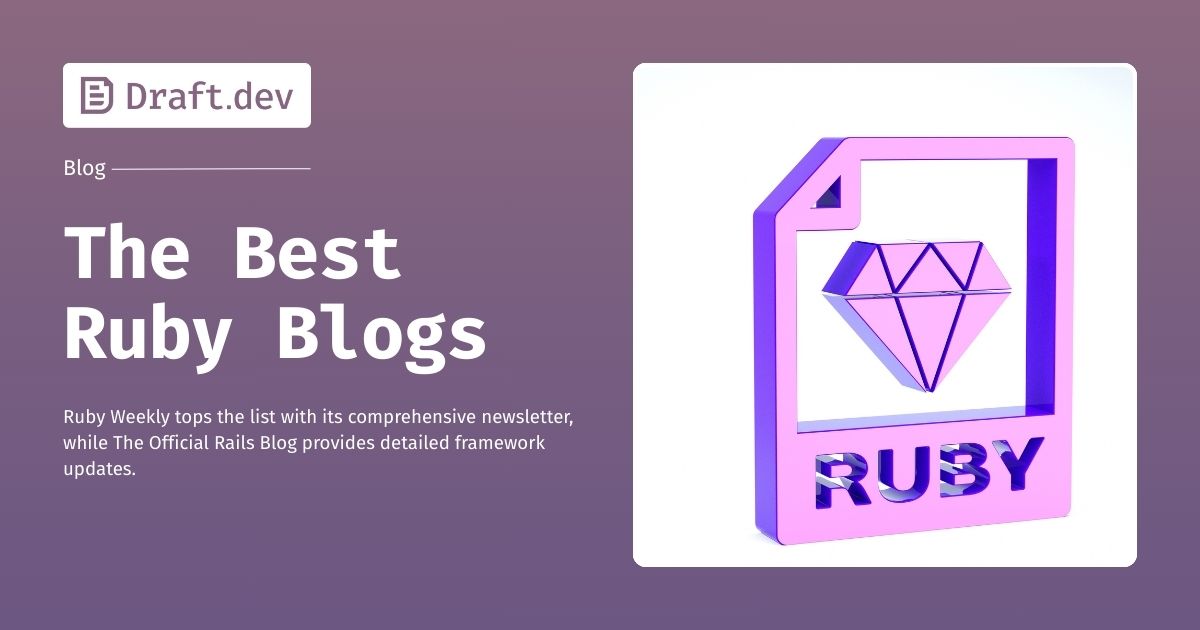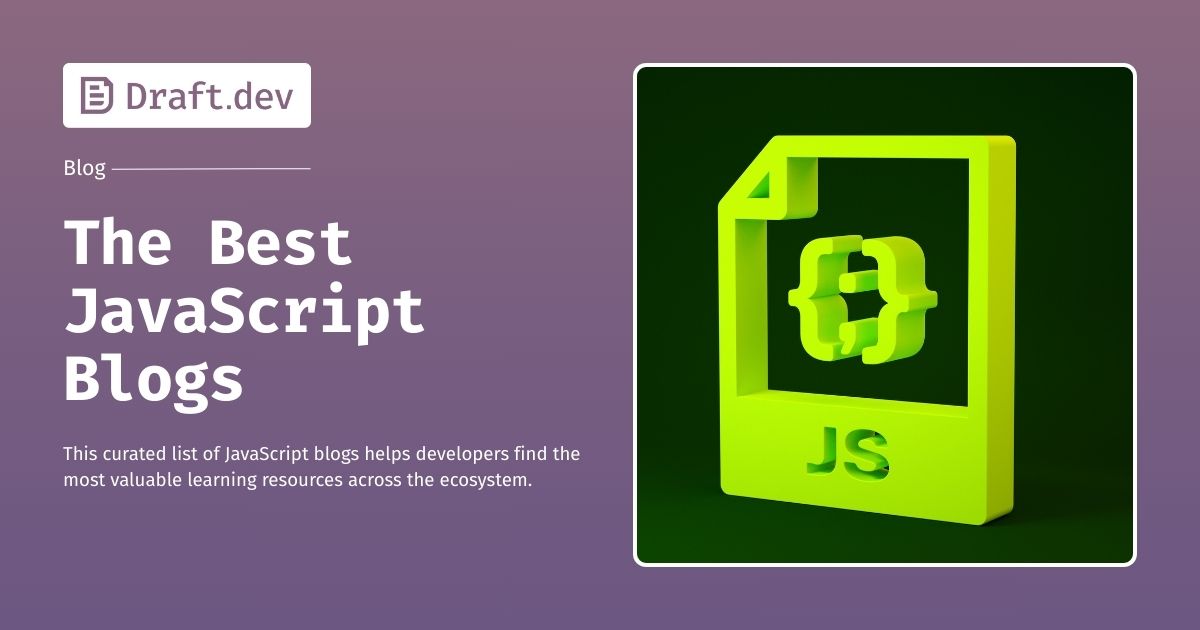Category: technical-blogs
-

The Best Technical Blogs in 2025
Discover the best technical blogs of 2025—curated by experts and ranked by quality, consistency, longevity, depth, and usefulness.
-

The Best Software Development Blogs
Discover the 24 best dev blogs rated on writing quality, publishing consistency, longevity, technical depth, and relevance.
-

The Best DevOps Blogs
The term “DevOps” seems to be everywhere these days, but I’ve found that understanding what it truly means and how it’s applied in practice can be surprisingly tricky. It’s a broad term that touches on everything from cultural philosophies and automation tools to specific practices like continuous integration and infrastructure as code. It can mean…
-

Best SaaS Marketing Blogs
As software-as-a-service (SaaS) businesses grow, so does the number of dedicated SaaS bloggers. The question is, which ones are worth following? The good news is, we’ve done the heavy lifting for you. This guide collected the best SaaS marketing blogs known for top-notch content based on personal experience. We also rank each provider based on…
-

The Best Python Blogs of 2025
Want to improve your Python skills? These 20 blogs will help developers of any level stay current with best practices and new techniques.
-

The Best Technical Writing Blogs
Elevate your technical writing skills with these 15 essential blogs, evaluated for content quality, industry presence, and depth of expertise.
-

Best Product Management Blogs
In project management, teams use specific skills, processes, tools, and methods to successfully steer a project from beginning to completion. The main objective is to deliver a high-quality product to the end user while staying within time and budget constraints. The managers who lead these projects must be aware of the latest techniques, tools, and…
-

Best Data Science, Machine Learning, and AI Blogs
These top-rated data science blogs cover the fundamentals to cutting-edge research with high technical depth and writing quality.
-

Best Crypto and Cryptocurrency Blogs
Crypto blogs covering everything from Bitcoin and Ethereum to blockchain technology, NFTs, and market analyses from industry experts.
-

The Best Golang Blogs for Learning Golang
Go has evolved significantly since its creation eleven years ago. Staying current with its ecosystem requires quality learning resources.
-

The Best Engineering Blogs
Stay ahead in tech with 30 handpicked engineering blogs, each rated on writing clarity, established authority, technical insight, and practical value
-

The Best C# Blogs
Need quality C# learning resources? This analysis of 20 top blogs covers everything from the fundamentals to specialized topics across the .NET ecosystem.
-

The Best Computer Science Blogs
This curated list of 30 CS blogs covers the entire discipline from theoretical concepts to practical applications.
-

The Best Ruby Blogs
Ruby Weekly tops the list with its comprehensive newsletter, while The Official Rails Blog provides detailed framework updates.
-

The Best JavaScript Blogs
This curated list of JavaScript blogs helps developers find the most valuable learning resources across the ecosystem.
-

The Best PHP Blogs
Need quality PHP learning resources? This ranking of 30 blogs will help you find the content that matches your experience level.